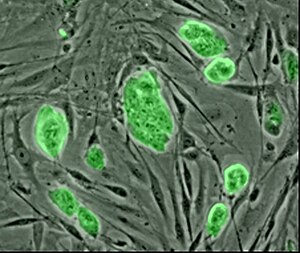 There are oases of water-rich soil that could sustain astronauts on the Moon, according to Nasa. Scientists studied the full results of an experiment that smashed a rocket and a probe into a lunar crater last year. The impacts kicked up large amounts of rock and dust, revealing a suite of fascinating chemical compounds and far more water than anyone had imagined.
There are oases of water-rich soil that could sustain astronauts on the Moon, according to Nasa. Scientists studied the full results of an experiment that smashed a rocket and a probe into a lunar crater last year. The impacts kicked up large amounts of rock and dust, revealing a suite of fascinating chemical compounds and far more water than anyone had imagined.
A Nasa-led team tells Science magazine that about 155kg of water vapour and water-ice were blown out of the crater. The researchers' analysis suggests some areas of lunar regolith, or soil, must contain as much as 5% by weight of water-ice.
Moon's water is useful resource, says Nasa
CERN scientists eye parallel universe breakthrough
Physicists probing the origins of the cosmos hope that next year they will turn up the first proofs of the existence of concepts long dear to science-fiction writers such as hidden worlds and extra dimensions. And as their Large Hadron Collider (LHC) at CERN near Geneva moves into high gear, they are talking increasingly of the "New Physics" on the horizon that could totally change current views of the universe and how it works.
"Parallel universes, unknown forms of matter, extra dimensions... These are not the stuff of cheap science fiction but very concrete physics theories that scientists are trying to confirm with the LHC and other experiments."
Swiss Complete World’s Longest Tunnel
 Swiss engineers drilling the world's longest tunnel broke through the last section of rock on Friday, crowning over a decade of work.
Swiss engineers drilling the world's longest tunnel broke through the last section of rock on Friday, crowning over a decade of work.
The 57.1-km (35.5-mile) rail tunnel under the Gotthard massif will enter service in 2017, taking some of the strain of the tens of thousands of tonnes of freight that cross the Alps on heavy goods trucks by road every day.
Rinderpest virus has been wiped out, scientists say
 Scientists working for the UN say that they have eradicated a virus which can be deadly to cattle. If confirmed, rinderpest would become only the second viral disease - after smallpox - to have been eliminated by humans.
Scientists working for the UN say that they have eradicated a virus which can be deadly to cattle. If confirmed, rinderpest would become only the second viral disease - after smallpox - to have been eliminated by humans.
Rinderpest was once prevalent in the Middle East, Africa and Asia. The UN's Food and Agriculture Organization (FAO) has said that it will now suspend its efforts to track and eliminate the virus.
Fossils of earliest land plants discovered in Argentina
 The earliest plants to have colonised land have been found in Argentina. The discovery puts back by 10 million years the colonisation of land by plants, and suggests that a diversity of land plants had evolved by 472 million years ago.
The earliest plants to have colonised land have been found in Argentina. The discovery puts back by 10 million years the colonisation of land by plants, and suggests that a diversity of land plants had evolved by 472 million years ago.
The newly found plants are liverworts, very simple plants that lack stems or roots, scientists report in the journal the New Phytologist. That confirms liverworts are likely to be the ancestors of all land plants.
Possible Cause of Bee Die-Off Is Found
 It has been one of the great murder mysteries of the garden: what is killing off the honeybees? Since 2006, 20 to 40 percent of the bee colonies in the United States alone have suffered “colony collapse.” Suspected culprits ranged from pesticides to genetically modified food.
It has been one of the great murder mysteries of the garden: what is killing off the honeybees? Since 2006, 20 to 40 percent of the bee colonies in the United States alone have suffered “colony collapse.” Suspected culprits ranged from pesticides to genetically modified food.
Now, a unique partnership — of military scientists and entomologists — appears to have achieved a major breakthrough: identifying a new suspect, or two. A fungus tag-teaming with a virus have apparently interacted to cause the problem, according to a paper by Army scientists in Maryland and bee experts in Montana in the online science journal PLoS One.
Scientists overcome hurdles to stem cell alternatives
 Scientists have invented an efficient way to produce apparently safe alternatives to human embryonic stem cells without destroying embryos, a long-sought step toward bypassing the moral morass surrounding one of the most promising fields in medicine.
Scientists have invented an efficient way to produce apparently safe alternatives to human embryonic stem cells without destroying embryos, a long-sought step toward bypassing the moral morass surrounding one of the most promising fields in medicine.
A team of researchers at the Harvard Stem Cell Institute in Boston published a series of experiments Thursday showing that synthetic biological signals can quickly reprogram ordinary skin cells into entities that appear virtually identical to embryonic stem cells. Moreover, the same strategy can then turn those cells into ones that could be used for transplants.
More Articles...
Page 46 of 61

 Science Glance
Science Glance






























